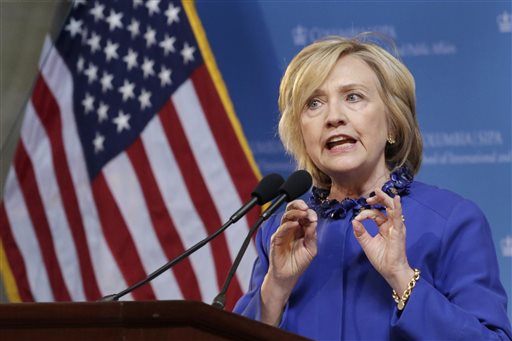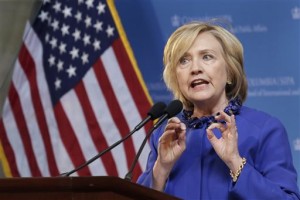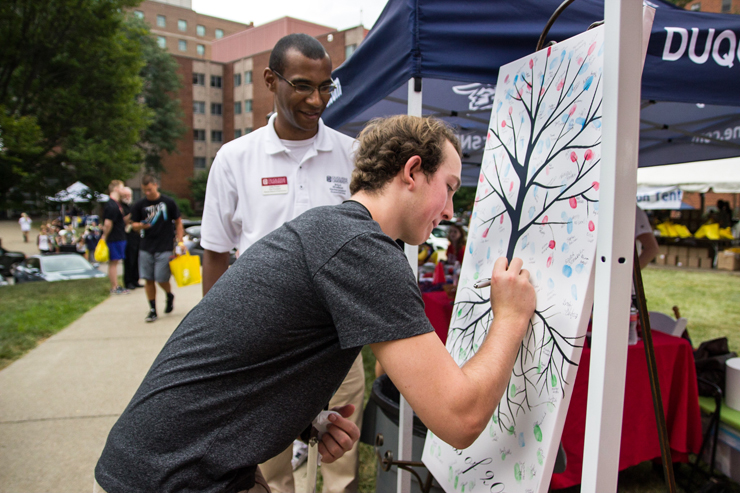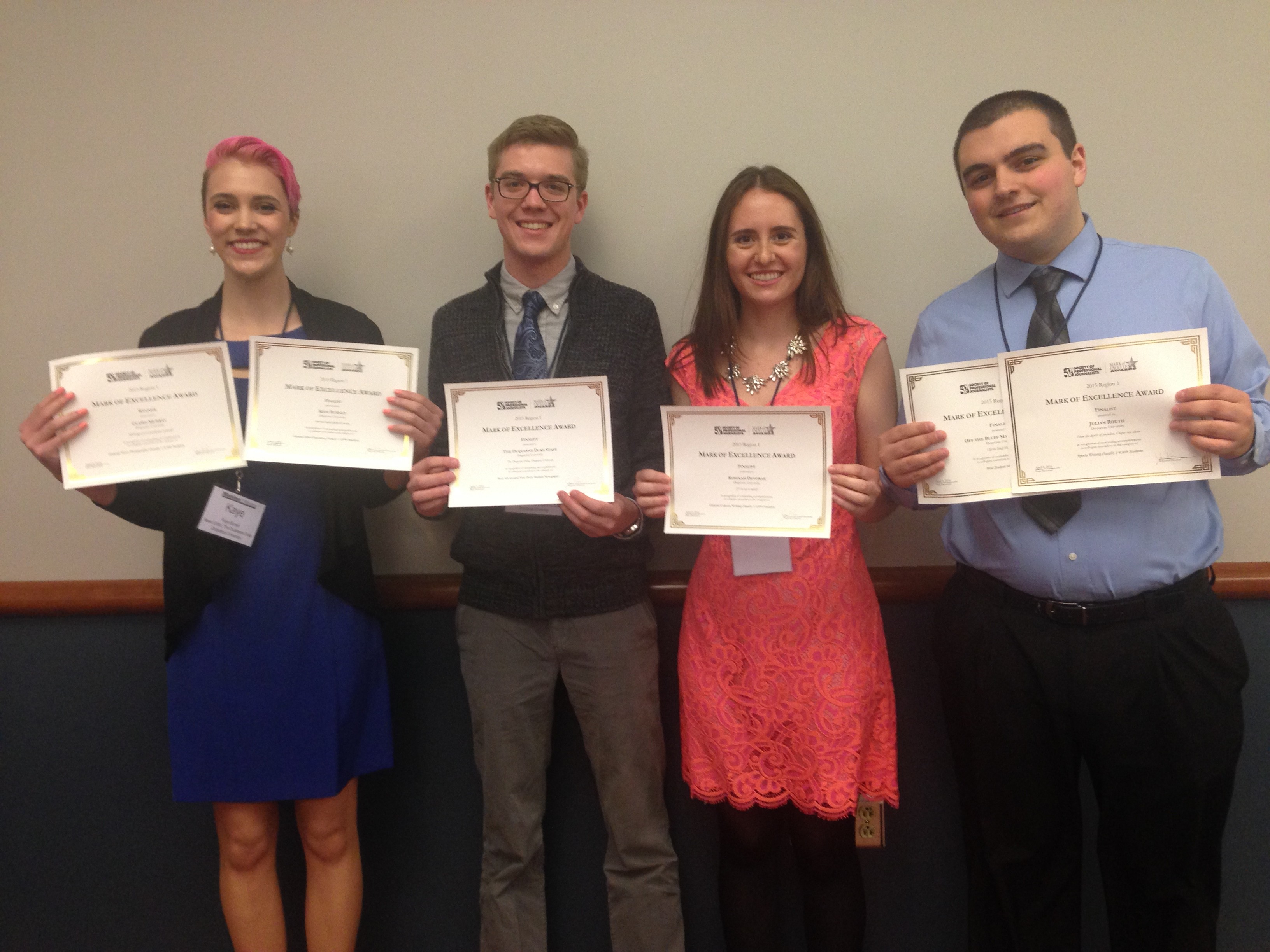

Julian Routh | News Editor
When classes start again in August, the first primaries of the 2016 presidential election will be right around the corner, so we at The Duke will send you home for the summer with an early look at the race. With help from Duquesne assistant political science professor and election specialist John Hanley, here’s a preview of the current candidate pool.
The Democrats
All eyes are on Hillary Clinton.
The former Secretary of State is the first and only Democrat to officially announce a run for the White House this time around, and according to The New York Times, she will face “little if any opposition” in the primaries.
Name recognition, along with the fact she could be the first female president in United States history, gives Clinton a significant fundraising advantage.
Voters can expect a platform from Clinton that mixes her experience as a mother and grandmother with issues of women’s rights, income inequality, paid family and medical leave and affordable childcare, among others.
To win the White House and avoid a repeat of 2008, when Barack Obama won the Democratic nod although Clinton was heavily favored, Clinton must appeal to the middle class, according to Hanley.
“She has to convey that ‘the way’ for middle class America still lays through the Democratic Party,” Hanley said.
In recent weeks, the 67 year-old former first lady has been the subject of several controversies that raised questions about her ethics. According to Haley, this highlights the danger of the Democrats putting “all their eggs in one basket” by solely supporting Clinton.
In March, Clinton’s exclusive use of a private email address during her tenure as secretary of state was criticized by senior Republicans as unlawful and secretive. Last week, allegations arose that Clinton’s charity, The Clinton Foundation, had received foreign donations that weren’t properly documented.
But for now, voters are waiting for Clinton to respond to these allegations. According to The National Journal, Clinton has only answered seven questions from the media since her candidacy announcement on April 12.
By the end of the summer, there could be more candidates in the picture for the Democrats. Former Maryland Gov. Martin O’Malley, former Rhode Island Gov. Lincoln Chafee and former U.S. senators Bernie Sanders and Jim Webb have all conveyed interest in running. Sanders is expected to announce his candidacy Thursday.
Hanley said there’s an advantage for a candidate to enter into the race run a “spirited, but not very aggressive” campaign.
“Even if Hillary ends up being the nominee, there’s still an opportunity for someone to get their name out there,” Hanley said. “Plus, there’s always a possibility that something could derail the frontrunner.”
Hanley said the Democrats have “slight momentum” coming into 2016, based on Obama’s performance in office.
“It’s beneficial to the Democrats that the economy has solidified, and that the number of people uninsured has dropped,” Hanley said. “All of the prophecies of how America was on the verge of destruction have not come to pass. But the logical gap is that for a lot of people, conditions have not really improved.”
The Republicans
Three Republicans have officially announced their candidacies, but that’s soon to change, as a laundry list of former and current governors and senators have expressed interest in a White House run.
U.S. senators Ted Cruz, Rand Paul and Marco Rubio are currently on the ballot for the GOP, which aims to carry its momentum from the midterm elections last November. The Republicans won nearly every contested election in the midterms, gaining control of the Senate and strengthening their grasp on the House of Representatives.
But those results might not have any impact on the 2016 presidential election, as “we can expect a slightly different electorate” to vote for the next president, according to Hanley. Historically, more youth and minority voters head to the polls during presidential elections than midterm elections, according to studies from the Pew Research Center.
Recent Quinnipiac polling data gives Rubio the early advantage, but other polls suggest the frontrunner is former Florida Gov. Jeb Bush, son of former President George H. W. Bush. Bush hasn’t officially announced his candidacy yet, but has already started fundraising with the help of his father and older brother, former President George W. Bush.
“In recent years, political science has coalesced around this model that says that elites within the political party are helping to structure the field of candidates, and that things like early money, early support and early endorsements are helpful for indicating who the nominee is going to be,” Hanley said. “That idea seems to be behind Jeb Bush.”
It will be interesting to see which Republican candidate can appeal to young voters, who helped carry Obama to reelection in 2012. This early on, Rubio appears to be that guy for the Republicans. The 43 year-old called the election “a generational choice about the kind of country we will be” during his candidacy announcement, and frequently talks about being a fan of football and rap music, according to The Washington Post.
To win back the White House, Hanley said the GOP will focus on the unfulfilled promise of the American economy for the middle class.
“I think [the GOP] will provide an implicit criticism of the Democratic administration by saying that it hasn’t done enough, and that economic opportunity will be better under the Republicans,” Hanley said.
Among other potential presidential candidates in the GOP are Wisconsin Gov. Scott Walker, New Jersey Gov. Chris Christie, former Arkansas Gov. Mike Huckabee, former Texas Gov. Rick Perry and U.S. Sen. Lindsey Graham.




